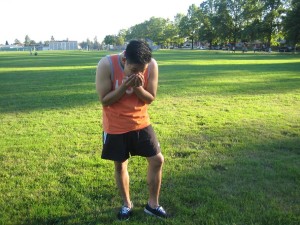Allergic rhinitis involves inflammation of the interior of the nose due to an allergen such as dust, pollen, mold or skin flakes from animals. It is considered as a common condition that affects many individuals all over the world.
Signs and symptoms of allergic rhinitis
Always bear in mind that allergic rhinitis usually triggers cold-like symptoms such as itchiness, sneezing and runny or blocked nose. Remember that these symptoms typically start soon after being exposed to an allergen.
Some individuals end up with allergic rhinitis for a few months at a time since they are highly sensitive to seasonal allergens such as grass or tree pollen. Some suffer from the condition all year round.
Many individuals who have allergic rhinitis have mild symptoms that are readily managed. Nevertheless, some individuals have symptoms that can be severe and persistent which results to sleep issues and disrupt with daily life. The symptoms of allergic rhinitis occasionally improve over time but can take many years and unlikely to vanish completely.

When to consult a doctor
A doctor must be consulted if the symptoms of allergic rhinitis disrupts with sleep and impairs capability to perform daily activities or significantly affecting performance at school or work.
The doctor might be able to diagnose the condition based on the symptoms and potential triggers. In case the exact cause of this respiratory condition is uncertain, the individual might be referred for allergy testing.
Causes of allergic rhinitis
Allergic rhinitis is due to the reaction of the immune system to an allergen as if it is a threat to the body. This triggers the cells to release chemicals that cause the mucus membrane to swell up and large amounts of mucus are produced.
The typical allergens that trigger allergic rhinitis include pollen, house dust mites, mold spores and skin flakes or droplets of saliva or urine from certain animals.
Treatment
Even though it is hard to completely avoid potential allergens, there are steps to minimize exposure to a particular allergen that might trigger the allergic rhinitis. In case the condition is mild, there are measures to relieve the symptoms by using over-the-counter medications such as non-sedating antihistamines or decongestants as well as regular rinsing of the nasal passages with a salt water solution.
A doctor should be consulted if these self-help measures are not effective. The doctor will prescribe a stronger medication such as a nasal spray that contains corticosteroids.
Further problems
In some circumstances, the condition can also lead to other complications such as the following:
- Nasal polyps
- Sinusitis
- Middle ear infections
It is important to note that these problems can be managed with medications but surgery is oftentimes required in severe or long-term cases.

